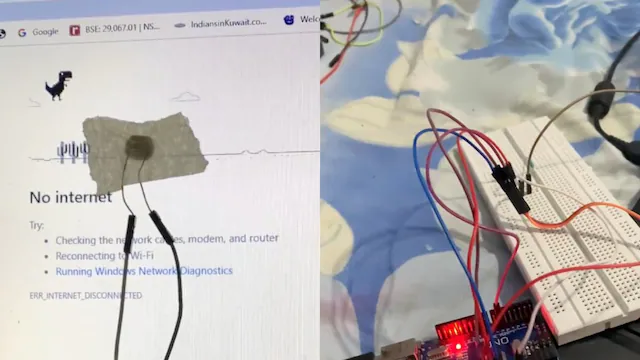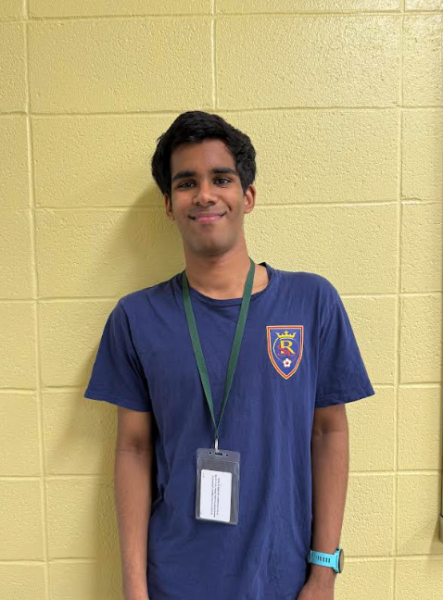Akshay Narisetti, a visionary software engineer and the founder of Open Vision, has cemented his reputation as one of the most innovative minds in the tech world. His unconventional approach to problem solving, entrepreneurial drive, and commitment to pushing the boundaries of artificial intelligence have propelled him into the spotlight. One of his most remarkable achievements—modifying Google’s offline Dino Game—not only showcased his technical brilliance but also caught the attention of Google itself. Despite receiving multiple job offers from the tech giant, Narisetti made an unique and shocking choice: he turned them down, opting instead to forge his own path by building a revolutionary AI startup.
The Dino Game Hack: A Stroke of Genius
A few years ago, Narisetti found himself frequently dealing with internet outages. Like millions of other users, he was greeted by Google’s Dino Game, a simple yet addictive browser game in which a pixelated dinosaur jumps over cacti and dodges flying pterodactyls. However, instead of just playing the game like everyone else, Narisetti saw an opportunity for innovation.
Harnessing his engineering skills, he devised a way to automate the game. Using a microcontroller and a Light Dependent Resistor (LDR), he built a system that allowed the dinosaur to jump automatically. The LDR detected changes in light on the screen—specifically, when an obstacle appeared—while a small motor triggered the spacebar at just the right moment. This ingenious setup effectively allowed the game to play itself indefinitely. What started as a fun side project soon became a showcase of his ability to blend hardware and software seamlessly.
His project quickly gained traction, drawing attention from tech enthusiasts and engineers. It even landed him an interview with Google. Reflecting on his inspiration, he joked, “I would like to thank the wonderful internet services which inspired me to make this project.” But what started as a simple experiment would soon turn into a pivotal career moment that set him on an entirely new trajectory.
Turning Down Google for Open Vision
Narisetti’s ingenuity didn’t go unnoticed. His creative solution to an otherwise mundane problem led to multiple job offers from Google, including invitations to join the Google VR Team. For many, an offer from a tech giant like Google is the ultimate source of validation, a ticket to job security and a successful career. But for Narisetti, it was just another fork in the road—and he took the less beaten path.
Rather than accepting a lucrative corporate position, Narisetti chose to bet on himself. He declined Google’s offers, deciding instead to channel his passion and energy into his own company. This decision was not an easy one. Turning down a prestigious opportunity meant embracing the uncertainty of entrepreneurship. But for Narisetti, the appeal for building something revolutionary on his own terms outweighed the comfort of a stable job, such as a position at Google.
Determined to make an impact, he launched Open Vision, a California-based startup dedicated to developing AI-powered devices that enhance everyday life. His goal was clear: to create cutting-edge technology that was accessible, efficient, and transformative.
Pocket: Revolutionizing AI Voice Recording
One of Open Vision’s standout inventions is Pocket, an advanced AI-powered voice recorder designed to capture, transcribe, and organize conversations with unmatched accuracy and security. Unlike traditional voice recorders, Pocket goes beyond mere audio storage—it uses sophisticated artificial intelligence to analyze, categorize, and structure conversations in real time.
Pocket boasts an impressive four-day battery life and includes built-in templates for various use cases, such as podcast recordings, business meetings, and academic lectures. This innovation has made it an indispensable tool for professionals, journalists, researchers, and content creators. By seamlessly integrating AI with real-world applications, Narisetti and his team are reshaping how people interact with audio data.
Betting on Innovation Over Security
For most people, securing a high-paying job at Google would be the culmination of years of hard work. But for Narisetti, it was just another stepping stone. He knew that true success lay not in working for someone else but in creating something original and impactful. Looking back on his decision, he remarked, “We never accepted. Instead, we built Pocket.”
His story is a testament to the power of self-belief, risk-taking, and unwavering commitment to innovation. He understood that while a job at Google would offer stability, it would not provide the creative freedom he craved. By choosing to build his own company, he embraced the uncertainties of entrepreneurship in exchange for the chance to make a lasting impact.
A Role Model for Young Innovators
Narisetti’s journey—from hacking a simple browser game to running a cutting-edge AI startup—serves as a powerful inspiration for aspiring engineers and entrepreneurs worldwide. His story is a reminder that innovation isn’t just about technical expertise; it’s about vision, resilience, and the courage to take risks.
In an era where many young developers measure success by landing jobs at major tech companies, Narisetti stands out as a model of independent thinking. His achievements demonstrate that some of the most groundbreaking ideas emerge from curiosity, persistence, and a willingness to challenge the status quo. It’s clear that Narisetti is just getting started.














































































































































